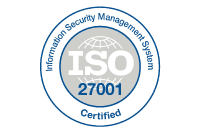Virtual IT Manager
What is a Virtual IT manager?
A virtual IT manager is a professional who provides IT management services remotely, typically over the internet. This can include tasks such as managing a company’s IT infrastructure, implementing, and maintaining cyber security measures, and providing technical support to employees.
Virtual IT managers will work with clients remotely using a variety of tools and technologies, such as video conferencing tools like Microsoft Teams. Enabling them to provide IT management services to clients without being physically present at their location.
















